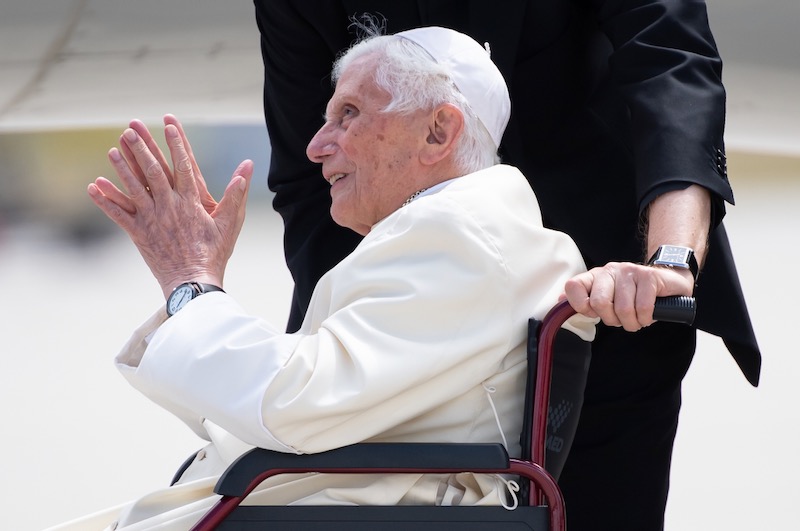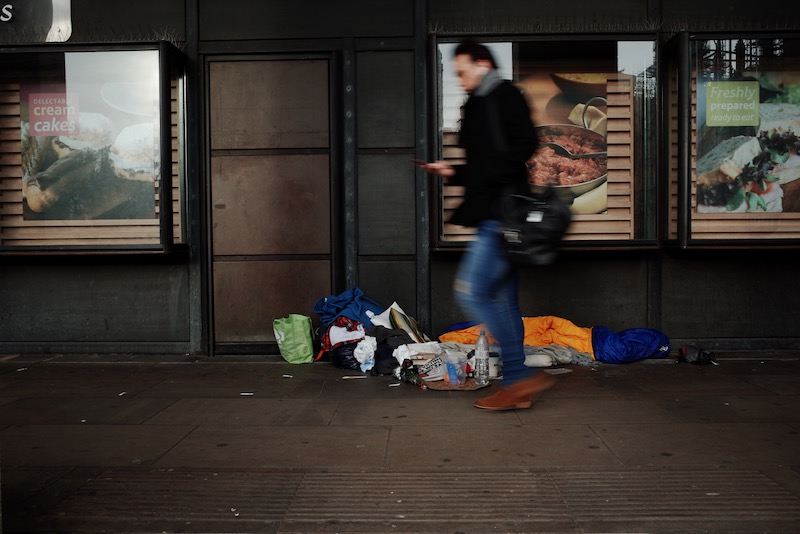Catholic groups have lobbied the Government in a bid to ensure that around 5,400 homeless people who have been housed in emergency pandemic accommodation for three months do not return to rough sleeping.
The groups are calling for adequate resources made available to keep them off the streets post-pandemic. Also, they are urging the Government to revise its exclusion of vulnerable groups, to help for example the many migrants who have no recourse to public funds.
“We are working with local authorities and businesses to ensure shelter, food and pastoral care to those who will have to leave hotels in early July,” said Fr Dominic Robinson, chair of Westminster Justice and Peace Commission. He said that some with health and addiction issues have been in better health in accommodation and still need support. And there are “new homeless” whom he says are, “people who have lost jobs and homes during the pandemic – and they are pouring onto the streets in growing numbers – who need to be looked after”.
He spoke to The Tablet while walking to Trafalgar Square where Central London Catholic Churches have been providing emergency food for up to 200 people daily.
“Some funds are being promised to rehouse the homeless currently in hotels and we stand ready to work together for a permanent and holistic solution to this affront to human dignity which sees those who have lost everything with nowhere to turn.”
Fr Dominic said that on-going partnerships between faith groups, local authorities and businesses could make significant strides towards addressing street homelessness longer-term.
He is one of the signatories to a letter sent last week to the Secretary of State of Housing, Robert Jenrick MP, in which the situation is described as “a national catastrophe in the making”.
The Catholic Children’s Society in the South East said that, “despite the efforts of the Government to prevent families being made homeless significant gaps and loopholes exist”. Deputy CEO Greg Brister told The Tablet that families who are lodging have very few rights and can be evicted at short notice. Alongside this, the pressures of lockdown have led to a significant increase in domestic abuse and many desperate parents have had to flee their homes with their children, “taking with them nothing but the clothes on their backs”.
Destitute refuges too are at breaking point. Through its Crisis Fund, the Catholic Children’s Society has provided emergency support for families to access housing.
The Passage, which has supported people in hotels throughout the lockdown, including feeding 350 people daily, is working to keep people off the streets more permanently. Chief Executive Mick Clarke told The Tablet: “The Passage’s Private Rented Sector team are now working hard to help move on from hotels, and their employment team is also helping people access employment.” The Passage is working closely with Dame Louise Casey of the Government’s Rough Sleeping Taskforce, which is interested in The Passage’s Home for Good scheme. Mr Clarke describes it as “a befriending scheme that helps those resettled off the streets integrate into their new community and sustain their accommodation, by encouraging and supporting community partnerships across the faith and community sector”.
Noah Enterprise, a member of the Catholic Social Action Network, has worked with other agencies in Luton to house and feed rough sleepers these past three months. Its head of welfare, Paul Prosser, said: “The next stage is to help people move on from the hotels into more sustainable accommodation”.
They have supported migrant rough sleepers with no recourse to public funds and have helped them find work and become more self-sufficient. “We believe that meaningful and sustaining work requires continuous investment and support from the UK government” Mr Prosser told The Tablet. “We are on the brink of launching a pioneering recruitment and training service linking keen workers with enthusiastic employers,” he reported, and “this inclusive social recruitment service will be a new model that we are ambitious will be transformative about changing the lives of former rough sleepers and giving dignity and hope”. Noah Enterprise believes central government decisions in this period could either prevent, or allow, a significant humanitarian issue on the doorstep.
In Birmingham, Father Hudson’s Care has been supporting 50 people in a city centre hotel, a provision which ends on 30 June. “Managing the hotel for the last three months has enabled us to build new links with the Council” said Christy Acton, the Deputy Community Projects Manager; “this has been a positive experience and we are feeling optimistic that the relationship will continue in this way in the coming months.”
Homelessness in Birmingham has reduced since March and it is hoped to keep it that way. Fr Hudson’s staff have supported the majority of the hotel guests to secure longer-term accommodation either through the Council or other housing providers. And its Tabor House project will reopen on 1 July, after being renovated and procedures revised to ensure it is Covid-safe.
Caritas Salford said that the Greater Manchester Homeless Action Network, under the leadership of Mayor Andy Burnham, has worked closely with the voluntary sector and Manchester City Council’s Rough Sleepers Team to address homelessness in the city.
Post-Covid programmes include A Bed for Every Night that prepares homeless people for supported tenancies. Another is the Housing First model that skips all the steps towards securing a tenancy and simply puts people into permanent accommodation and supports them to retain it with wrap around services.
However, Director Mark Wiggin said that “the problem goes well beyond accommodation, for many people who are homeless have complex needs and are drug and alcohol dependent with the addition of mental health issues amplified by the stress and uncertainty of life.” He said: “We need more dual diagnosis services and there’s a real need to re-instate these services that have lost so much funding.”
Mr Wiggin said: “Another area for advocacy is destitution – those with no recourse to public funding.” These are people who are not in the benefits system and have no access to housing benefit or universal credit.
Caritas Salford homelessness and destitution services has experience of many European Economic Area Migrants who have no access to services even if they are legally and technically entitled to them. Some who have been in Britain for years have never documented their legal entitlements as some may have been trafficked; others may not have been employed legally so do not have P45s or other proofs of work.
“We need far more investment in access to legal aid to untangle a plethora of legal and immigration hurdles that need to be overcome”, Mr Wiggin said. “As we come out of the coronavirus pandemic we need to stay focused on a ‘new normal’ that brings together service providers with the common goal of cooperation to create lasting change to the support systems that need reform and investment.”



 Loading ...
Loading ...